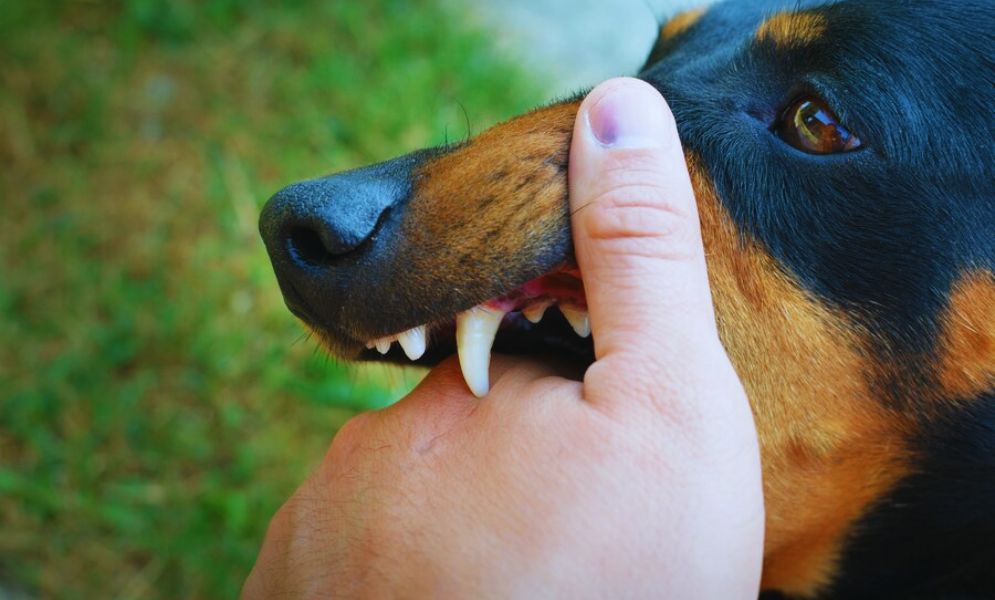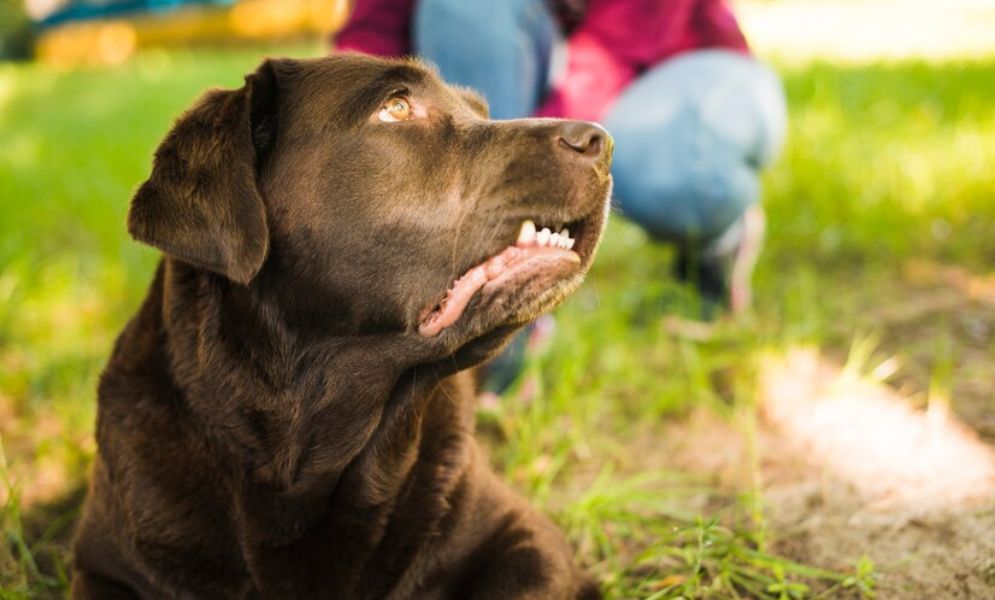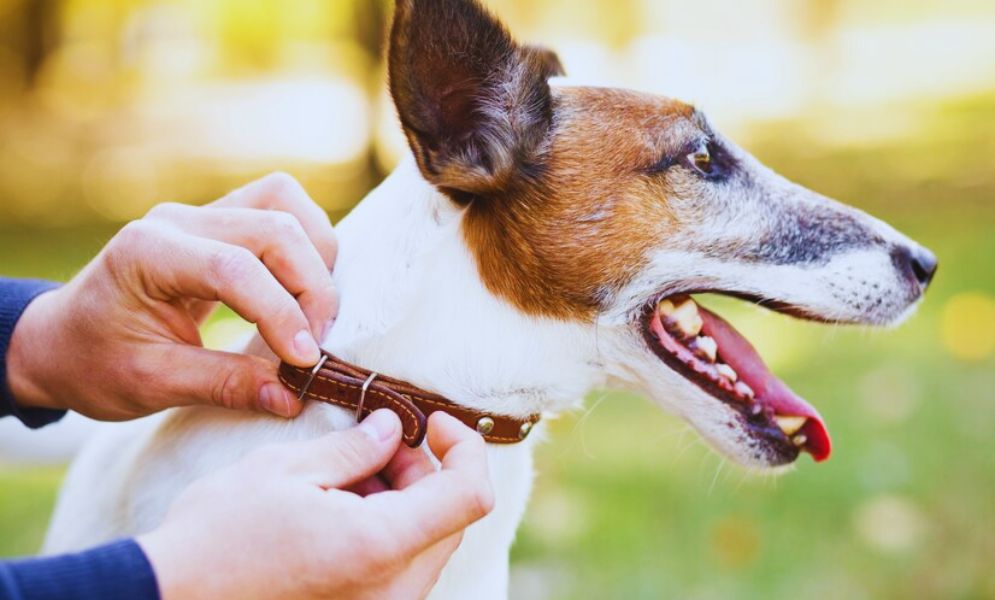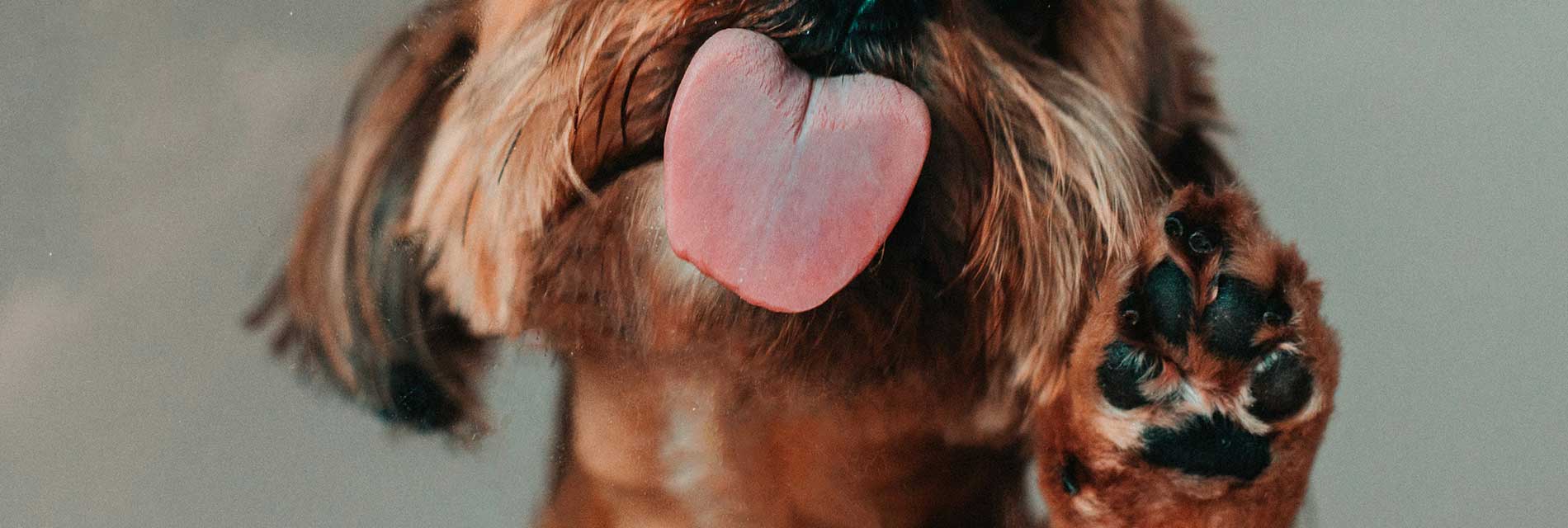Why Is Your Dog Biting Suddenly, And What You Can Do About It


Imagine this: you are playing with your pup as usual, but suddenly, they bite you. You are obviously shocked, worried, and confused. Sudden dog biting can be quite concerning, but dont be afraid and dont start panicking.
This is because there are usually good reasons behind sudden changes in our dog’s behavior towards us. In this article, we will explore why your dog might have started biting seemingly out of the blue.
We will look at possible triggers, from health issues to environmental changes that may have led to your dog biting. Additionally, we will give you tips on how to handle the situation.
Dog Biting Out of Nowhere? Here Are Some Possible Reasons

Dogs are known to be loyal and loving companions, which is why it can be alarming and confusing when a normally well-behaved dog starts biting out of nowhere. Sudden biting can threaten both the dog and the people or animals around them.
Hence, it is important to address the behavior promptly. To do so, you need to know the possible reasons why your dog might have started biting. These are as follows:
Medical Issues
One of the first things you should consider when your dog starts biting unexpectedly is whether there is an underlying medical issue. Our dogs can’t verbalize when they are in pain or discomfort, so they may resort to biting as a way to communicate discomfort.
Pain from dental problems, such as broken teeth or gum infections, can cause a dog to snap at anyone who comes too close to their face. Similarly, joint pain from conditions like arthritis can make a dog irritable and less tolerant of physical touch.
Neurological problems can also lead to aggressive behavior. Brain tumors, epilepsy, or other disorders affecting the nervous system might result in sudden and unpredictable biting.
If your dog’s biting behavior appears to come out of nowhere, it’s essential to rule out these possibilities by consulting a veterinarian. A thorough medical exam could uncover pain or health issues that may be the root cause of the behavior.
Fear or Anxiety
Dogs may also bite when they are scared or anxious. Just like humans, dogs can develop fears of certain environments, people, or other animals. Your dog that previously had no problem being around strangers might start biting if it suddenly feels fearful or threatened.
Common triggers for fear-based biting include loud noises (such as fireworks or thunderstorms), the presence of new people or animals in the home, or changes to the dog’s daily routine.In some cases, traumatic experiences from the past may resurface, causing a dog to react aggressively.
For example, if a dog was mistreated by a previous owner or had a negative encounter with another animal, those memories can influence their behavior later on. Even if the trauma occurred long ago, the dog may start to exhibit signs of fear or anxiety that weren’t present before.
Resource Guarding
Another possible explanation for sudden biting is resource guarding. This occurs when a dog becomes possessive of items they see as valuable, such as food, toys, or their favorite resting spot. A dog that needs to protect these resources may growl, snap, or bite if they perceive someone as trying to take them away.
Resource guarding is a natural instinct in dogs, but when it escalates to biting, it needs to be addressed to ensure everyone’s safety. If your dog has started biting when you approach their food bowl, toys, or bed, it’s possible that resource guarding is the culprit. While this behavior is instinctual, it’s important to work with a professional trainer to modify it and prevent any dangerous situations from occurring.
Lack of Socialization
Socialization is critical in helping dogs understand how to interact appropriately with the world around them. If your dog hasn’t been properly socialized during their formative years, they may struggle to cope with new situations, people, or other animals.
Moreover, dogs not exposed to various experiences during their formative years may react with fear or aggression when encountering something unfamiliar. For instance, if a dog has not been around young children before, they may become nervous and bite when a child approaches them.
Similarly, dogs that haven’t been around other pets may become territorial or aggressive when meeting a new dog for the first time. Socialization is key to preventing these types of behaviors, so it’s important to expose your dog to different environments and situations in a controlled and positive way.
Aging
As dogs age, their behavior can change due to cognitive decline or physical limitations. Senior dogs, in particular, may become more irritable or less tolerant of being touched, which can lead to biting.
Cognitive dysfunction syndrome (CDS), similar to dementia in humans, can cause confusion, anxiety, and irritability in older dogs. A dog suffering from CDS may bite because they are disoriented or frightened by something that wouldn’t have bothered them in the past.
If your dog is getting older and has started biting, it’s important to consult with your vet. They may recommend treatments or lifestyle changes to help your dog feel more comfortable in their senior years.
Behavioral Changes Due to Incomplete or Lack of Training
Training plays a significant role in shaping a dog’s behavior. If your dog has received inconsistent or incomplete training when they were a puppy, they may not understand what is expected of them.
This can lead to confusion and frustration, manifesting as aggressive behavior. On the other hand, dogs that have been subjected to harsh or punitive training methods may develop fear-based aggression as a result of being mistreated.
If your dog’s biting is linked to behavior or training issues, it’s essential to work with a professional dog trainer or behaviorist. A qualified trainer can help you identify the root cause of the biting and develop a plan to correct the behavior in a positive and humane way.
What to Do If Your Dog Starts Biting Suddenly

If your dog suddenly starts biting, it can be quite alarming and frightening for you. But you should force yourself to stay calm in the situation. This is because your subsequent reactions can influence your dog’s behavior.
If you stay calm, your dog will also calm down eventually. But if you yell and shout, it might worsen the situation. If you have a large or even a medium-sized dog, that is the last thing you want.
Identify Triggers
Your next step should be to take a step back, assess the situation, and try to identify the triggers. Try to observe what might be causing the biting. Is it happening during play, when they’re eating, or when they’re feeling threatened?
Identifying triggers can help you understand the root cause. Also, Until you have a clear understanding of what’s causing your dog’s biting, it’s best to avoid situations that could trigger aggressive behavior.
Check for health Issues
If you suspect that the sudden dog biting is because of pain or discomfort, then make an appointment with the vet. A thorough medical exam can rule out any underlying health issues that might be contributing to the behavior. If a medical problem is found, treating it can often resolve the biting behavior.
Consult A Professional Dog Behaviorist & Trainer
If the vet rules out medical issues, the next step is to consult a professional dog trainer or behaviorist. These experts can evaluate your dog’s behavior and create a personalized plan to modify the aggressive behavior. They can also teach you how to handle and manage your dog’s biting in a safe and effective way.
Create a Safe Space
Creating a calm and safe environment is crucial for dogs experiencing stress or anxiety. Identify any potential triggers for your dog’s biting and take steps to minimize their exposure to them.
For example, if your dog fears loud noises, you might create a quiet space where they can retreat during thunderstorms or fireworks.
Similarly, if your dog bites when someone approaches their food, feed them in a quiet, isolated area to reduce stress.
Remember, understanding and patience are key. With the right approach, you can help your dog overcome this behavior.









Leave A Comment